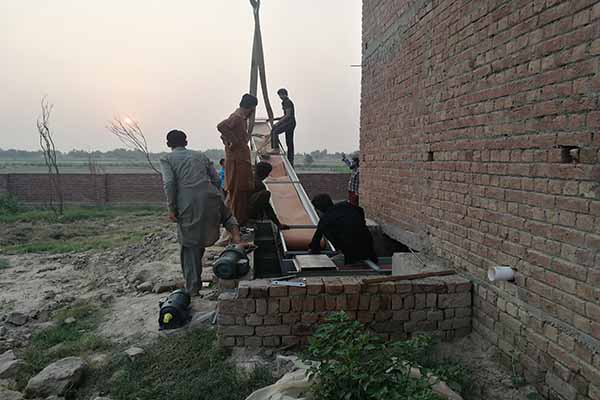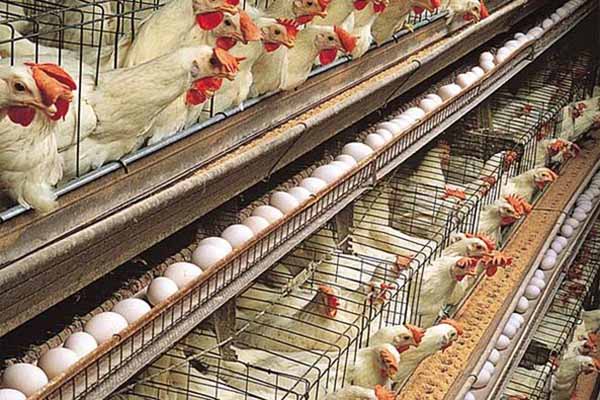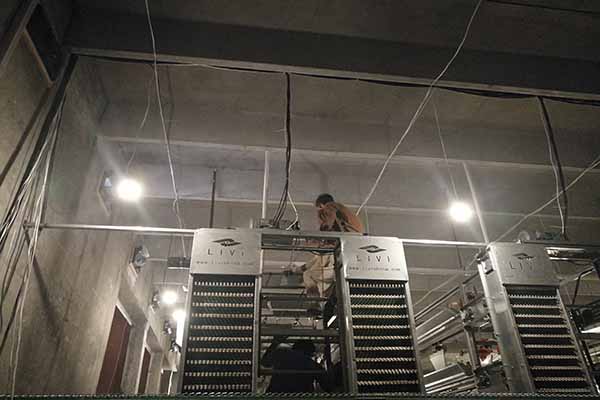Layer Chicken Cage Systems in South Africa for Egg Production: A Comprehensive Guide
Time : 2025-07-03
In the poultry industry, the implementation of advanced layer chicken cage systems is crucial for optimizing egg production in South Africa. With the growing demand for eggs and the increasing emphasis on sustainable and efficient farming practices, it is essential for farmers to understand the intricacies of these systems. This article delves into the details of layer chicken cage systems in South Africa, highlighting their importance, features, benefits, and considerations for implementation.
Introduction to Layer Chicken Cage Systems
Layer chicken cage systems are designed to house egg-laying hens in a controlled environment, ensuring optimal conditions for egg production. These systems provide a safe and comfortable space for the hens while minimizing the risk of diseases and ensuring efficient egg collection. In South Africa, these systems are widely adopted due to their numerous advantages over traditional poultry farming methods.

The Importance of Layer Chicken Cage Systems in South Africa
South Africa’s poultry industry plays a significant role in the country’s economy, contributing to food security and providing employment opportunities. However, the egg production sector faces several challenges, including disease outbreaks, inefficient space utilization, and low productivity. Layer chicken cage systems address these challenges, making them vital for the industry’s growth and sustainability.
1. Disease Prevention and Control
Layer chicken cage systems minimize the risk of diseases by isolating the hens, thereby reducing the transmission of pathogens. These systems allow for easy cleaning and disinfection, further enhancing biosecurity. As a result, farmers can expect a healthier flock and increased egg production.
2. Efficient Space Utilization
Layer chicken cage systems optimize space utilization, enabling farmers to house more hens in a smaller area. This is particularly important in South Africa, where land is often scarce. By maximizing the number of hens per unit area, farmers can increase their productivity without expanding their farming operations.

3. Enhanced Egg Collection
The automated egg collection process in layer chicken cage systems ensures a constant flow of eggs from the hen house to the collection point. This eliminates the need for manual collection, reducing the risk of broken eggs and contamination. Additionally, the centralized egg collection point makes it easier for farmers to monitor egg quality and manage their inventory.
Features of Layer Chicken Cage Systems
Layer chicken cage systems come with various features designed to improve egg production and animal welfare. Here are some of the key features:
1. Perch Design
Perches in layer chicken cage systems are designed to encourage natural roosting behavior, providing a comfortable resting place for the hens. The height and spacing of the perches are carefully optimized to ensure easy access and minimize the risk of injuries.
2. Feeders and Waterers
Automated feeders and waterers in layer chicken cage systems ensure that hens have constant access to food and water. These systems can be adjusted to meet the specific nutritional requirements of the flock, further improving egg production and quality.
3. Environment Control
Layer chicken cage systems often come with climate control mechanisms to maintain the ideal temperature and humidity levels in the hen house. This helps prevent heat stress and disease outbreaks, ensuring a healthier flock and higher egg production.
4. Egg Collection Equipment
Automated egg collection equipment ensures a continuous and hygienic flow of eggs from the hen house to the collection point. These systems are designed to minimize the risk of contamination and broken eggs, providing farmers with a reliable source of income.
Benefits of Layer Chicken Cage Systems
Implementing layer chicken cage systems in South Africa offers several benefits, including:
1. Increased Egg Production
Layer chicken cage systems create an optimal environment for hens, leading to higher egg production. Studies have shown that cage systems can increase egg yields by up to 20% compared to traditional methods.
2. Improved Animal Welfare
The comfort and safety provided by layer chicken cage systems contribute to improved animal welfare. Hens have access to fresh food, water, and shade, reducing stress and promoting good health.
3. Enhanced Profitability
The combination of increased egg production, improved animal welfare, and reduced disease outbreaks makes layer chicken cage systems highly profitable for farmers. By investing in these systems, South African poultry farmers can secure their position in the competitive global market.
Considerations for Implementing Layer Chicken Cage Systems
When considering the implementation of layer chicken cage systems in South Africa, farmers should take into account the following factors:
1. System Design
Proper system design is crucial for the success of layer chicken cage systems. Farmers should consult with poultry experts to determine the most suitable system for their farm, considering factors such as flock size, climate, and available space.
2. Biosecurity Measures
Biosecurity is a critical aspect of layer chicken cage systems. Farmers must implement strict biosecurity measures to prevent the entry and spread of diseases within the flock. This includes regular cleaning and disinfection, isolation of new birds, and monitoring for any signs of illness.

3. Training and Support
Farmers should seek training and support from experienced poultry professionals to ensure the successful implementation of layer chicken cage systems. Regular maintenance and troubleshooting are essential for the system’s optimal performance.
Conclusion
Layer chicken cage systems have proven to be a valuable asset to the poultry industry in South Africa. By addressing the challenges of egg production, these systems offer numerous benefits for farmers, including increased productivity, improved animal welfare, and enhanced profitability. As the demand for eggs continues to grow, the adoption of layer chicken cage systems will play a crucial role in securing the future of the South African poultry industry.
, , , ,











